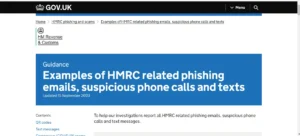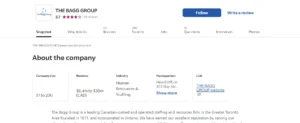In recent times, an increasing number of individuals have become victims of the credit investigation department scam calls.
These fraudulent calls, disguised as official inquiries from legitimate credit investigation departments, aim to deceive unsuspecting individuals into providing sensitive personal information or making fraudulent payments.
It is crucial for individuals who desire freedom and value their financial security to be aware of the signs and tactics used by scammers in these calls. By understanding how scammers target and manipulate their victims, individuals can take proactive steps to protect themselves.
This brief guide will provide valuable insights on how to identify and report credit investigation department scam calls, as well as practical tips to safeguard against falling prey to these scams.
Signs of a Credit Investigation Department Scam Call
The presence of deception and coercion are key signs of a Credit Investigation Department scam call. These scammers often employ common scam call scripts to trick unsuspecting individuals into divulging personal and financial information.
To avoid falling victim to such scams, it is crucial to be aware of these signs and exercise caution when receiving calls from unknown numbers.
Tactics Used by Scammers in the Fraudulent Calls
Scammers in fraudulent Credit Investigation Department calls employ a variety of tactics to manipulate and deceive unsuspecting individuals into providing sensitive personal and financial information. One common scam targeting senior citizens involves posing as a representative from a legitimate organization and claiming that there is an issue with their credit.
These scammers use fear tactics and urgency to pressure victims into sharing their personal information. To spot and avoid phone scams, individuals should be wary of unsolicited calls, verify the caller’s identity independently, and avoid providing personal information over the phone.
How Scammers Target and Manipulate Victims
Scammers employ various psychological manipulation techniques to target and manipulate their victims. By exploiting vulnerabilities and emotions such as fear, urgency, and trust, scammers are able to gain control over their victims and convince them to divulge personal information or make financial transactions.
It is important for individuals to be aware of red flags, such as unsolicited calls, requests for immediate action, and requests for sensitive information, in order to recognize and protect themselves against these manipulative tactics.
Psychological Manipulation Techniques
Victims of credit investigation department scams can fall prey to sophisticated psychological manipulation techniques employed by fraudsters. These techniques exploit vulnerabilities and manipulate emotions to gain control over the victims’ thoughts and actions. Here are four key aspects of psychological manipulation techniques used by scammers:
- Exploiting trust: Scammers manipulate victims by building a false sense of trust, often impersonating authority figures or using official-sounding language.
- Creating urgency: They instill a sense of urgency, pressuring victims to make quick decisions without thorough consideration.
- Emotional manipulation: Scammers play on victims’ emotions, using fear, guilt, or empathy to manipulate their actions.
- Isolation and secrecy: By isolating victims and creating a sense of secrecy, scammers discourage them from seeking advice or assistance from others.
Understanding these techniques is crucial in protecting oneself from falling victim to these scams.
The ethical considerations in psychological manipulation techniques and the long-term effects of falling victim to a credit investigation department scam highlight the importance of awareness and caution in dealing with such situations.
Red Flags to Identify
Identifying red flags is essential in understanding how fraudsters target and manipulate individuals in credit investigation department scam calls. By recognizing common scams and being aware of warning signs, individuals can protect themselves from falling victim to these schemes.
Some red flags to watch out for include:
- Unsolicited calls claiming to be from a credit investigation department
- Requests for personal information or payment over the phone
- Threats of legal action or consequences for non-compliance
Being vigilant and skeptical can help individuals avoid becoming victims of these scams.
Steps to Take if You’ve Fallen Victim to the Scam
After discovering that you have fallen victim to the Credit Investigation Department scam call, it is crucial to promptly take the necessary steps to protect yourself and mitigate any potential damage.
Here are some important steps to consider:
- Report the scam to your local law enforcement agency to help prevent others from falling victim and to document the incident for potential legal consequences.
- Contact your bank or credit card company to freeze your accounts and prevent further unauthorized transactions.
- Inform the credit bureaus about the scam to place fraud alerts on your credit reports and monitor for any unauthorized activity.
- Consult with a legal professional to explore options for recovering stolen funds and potentially taking legal action against the scammers.
Tips to Protect Yourself From Credit Investigation Department Scams
To effectively protect yourself from Credit Investigation Department scams, it is crucial to implement proactive measures that can significantly reduce the risk of falling victim to such fraudulent activities.
Safeguarding your finances and avoiding financial scams should be a priority. Stay vigilant by regularly monitoring your credit reports and bank statements, being cautious of unsolicited calls or emails asking for personal information, and educating yourself about common scam tactics.
Reporting Credit Investigation Department Scam Calls
A crucial step in combating Credit Investigation Department scam calls is promptly reporting them to the appropriate authorities. To effectively report these scams, follow these tips:
- Document the details of the call, including the date, time, and phone number.
- Contact your local law enforcement agency and provide them with the information.
- Report the scam to the Federal Trade Commission (FTC) and your state Attorney General’s office.
- Consider filing a complaint with the Better Business Bureau (BBB) to alert others about the scam.
Conclusion
In conclusion, credit investigation department scam calls are a growing concern that can have serious financial consequences for victims. By understanding the signs of these scams, tactics used by scammers, and how they manipulate their victims, individuals can better protect themselves from falling prey to these fraudulent calls.
Additionally, reporting such scams is crucial in raising awareness and holding scammers accountable. Taking proactive steps to safeguard personal information and staying vigilant can help individuals avoid becoming victims of credit investigation department scams.






































